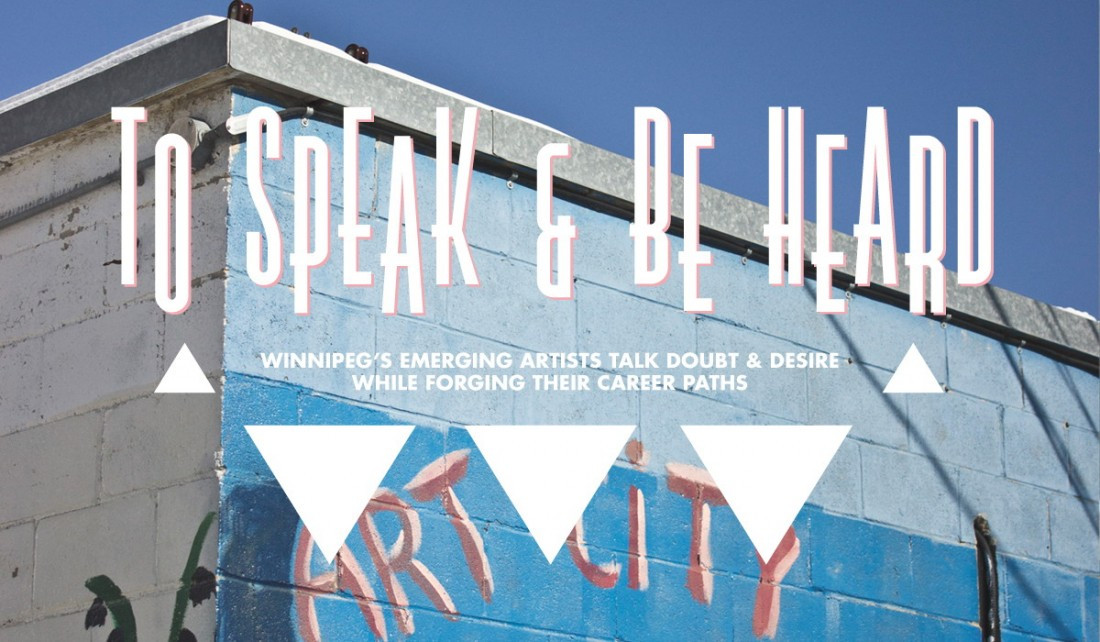To Speak & Be Heard
WINNIPEG’S EMERGING ARTISTS TALK DOUBT & DESIRE WHILE FORGING THEIR CAREER PATHS
Embarking on a career in the arts can be daunting. Scratch that.
Terrifying.
With worried looks from relatives and the all-too-familiar phrase, “Oh you mean you’re going to teach art,” not to mention the natural concerns that go along with entering the workforce, it can often seem like an idea that’s better kept in daydreams.
For six artists in Winnipeg, the thrill of forging their own career paths has been rewarding, dubious and all together exhilarating.
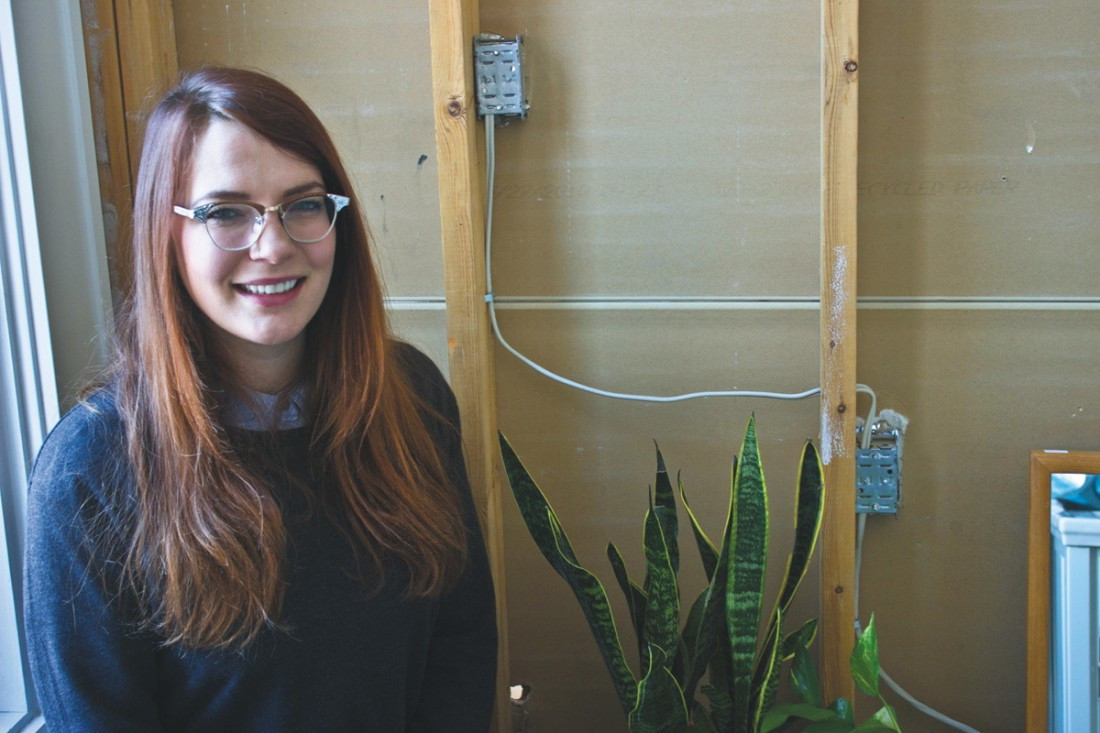
Helga Jakobson - Credit: Jillian Groening
“I feel best when I’m creating so I try not to doubt it,” visual and performance artist Helga Jakobson, 28, says. “There are always doubts but they are natural ones, like what food to eat and what clothes to wear. But when it comes to my art practice I generally feel supported and empowered.”
Since graduating from the University of Manitoba last year with a Bachelor of Fine Arts (Honours), Jakobson has maintained a busy and productive schedule with residencies at The Banff Centre, The Edge Gallery and most recently The Tallest Poppy. She also holds the role of vice president at aceartinc.
Most B.A. graduates can attest to the fact that with no regular assignments, no deadlines and no pressures from classmates or professors to keep producing, the postgraduate slump can be a confusing place. For Jakobson, finding the impetus to create was one of the most difficult parts of life after graduation.
“I made sure I had projects and residencies lined up so that I didn’t lose drive,” Jakobson explains. “I definitely found it difficult to focus when not given the space to create or assignments to complete. And sometimes the path forward can be murky.”
Similar to Jakobson, dancer Warren McClelland, 23, was confident about pursuing a career in the arts, however it was a means of making that possible which proved tricky.
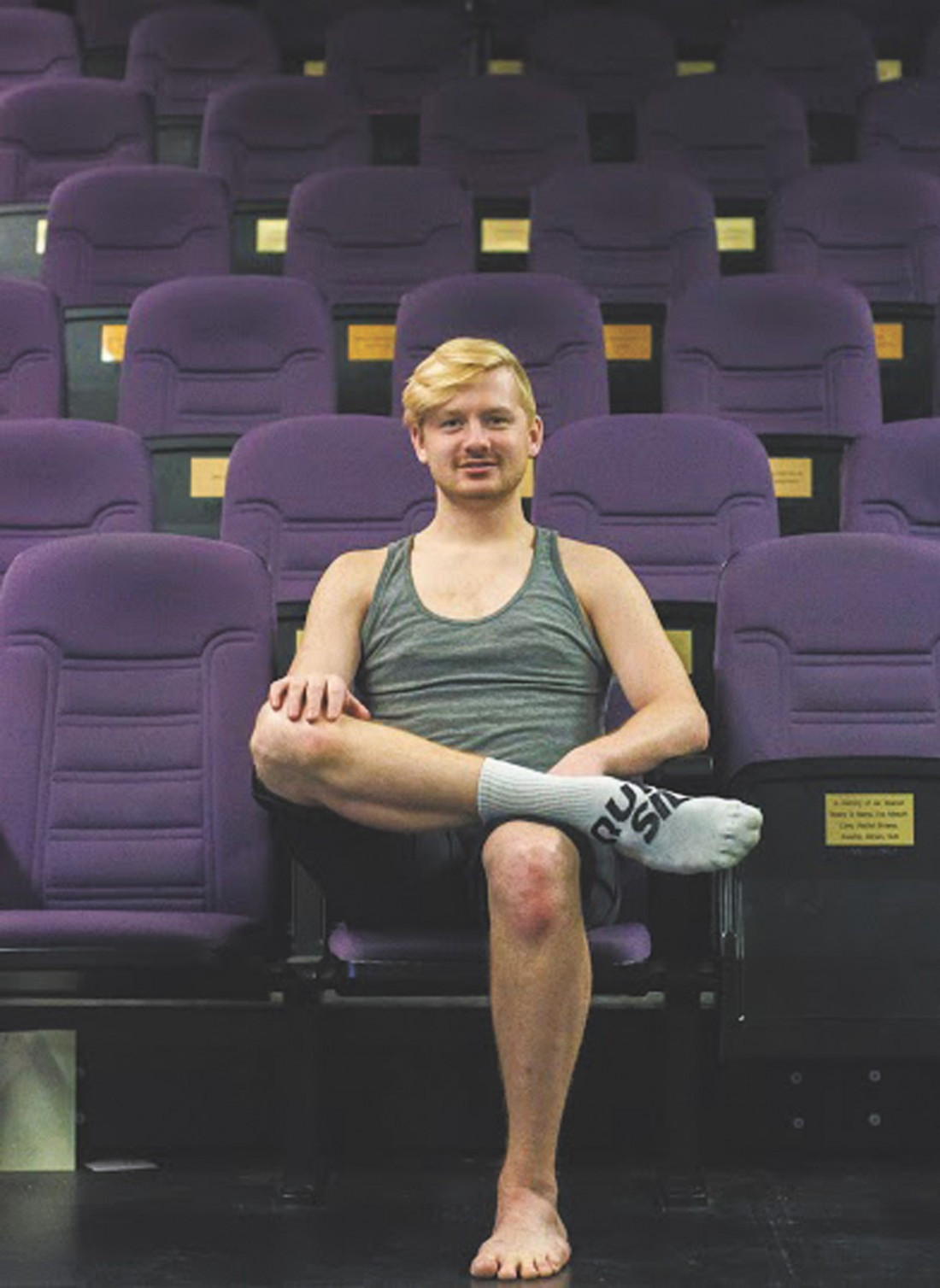
Warren McClelland - Credit: Sherwin Opeña
A recent graduate of the senior professional program at the School of Contemporary Dancers (SCD) in affiliation with the University of Winnipeg, McClelland originally felt uncertainty surrounding his career route, which involved over five years of intensive training.
Now an apprentice with Winnipeg’s Contemporary Dancers (WCD), McClelland is dancing full-time with the company while also holding down a serving job five nights a week. He makes it work but would love to eventually be able to strictly focus on dance.
-SherwinOpena-2_1100_562_90.jpg)
“It’s nerve-wracking from time to time, and I often wonder if I should be creating my own work or auditioning other places and putting myself out there more,” McClelland says. “But I also feel that the uncertainty leads to other options and other opportunities. If you are adamant about what you want to be doing then you should just go for it.”
Having the opportunity to build his artistic resumé while still in school helped both McClelland and Jakobson immensely. In a career dependent on ever-dwindling government arts funding, gaining professional experience at a young age is hard to come by.
“It’s challenging when you don’t have anything on your resumé, due to being young and fresh out of school, but you need to be getting these grants to get the work,” actor Gwendolyn Collins, 28, states. “It’s a weird cycle.”

Gwendolyn Collins - Credit: Jillian Groening
Collins holds a B.A. (Hons) in Theatre/Film from the University of Winnipeg and has performed in productions presented by Prairie Theatre Exchange, the Royal Manitoba Theatre Centre (RMTC), Theatre Projects Manitoba and Winnipeg Jewish Theatre as well as producing her own shows in the Winnipeg Fringe Festival.
A large struggle that Collins confronted while navigating the hierarchical world of theatre was finding the confidence to call herself an actor.
“A few years ago I went through a phase of being embarrassed to admit I was an actor and I found I had a couple friends who felt the same,” Collins, who also works box office at RMTC, says. “It’s so silly and I was wondering ‘why the embarrassment?’ Even if it’s not necessarily the bulk of my income it’s where my head is and my heart is. There should be no shame in calling myself an actor.”
Jakobson, who also manages a restaurant in the city, found herself in a similar situation to Collins until she found new media and started exhibiting and producing work she was happy with.
“I think that feeling is natural in regards to self-identity,” Jakobson explains. “Even though I have another full-time job I never leave my work at home. The nature of the industry is constant in regards to art practice and culture. It’s meditative for me.”
For budding poet Joshua Whitehead, the issue of self-identity is a constant struggle. An emerging artist who is still finding his voice and his style, the realm of writing breeds a benevolent relationship where categorization can help you get published. However, it will also
limit you.
“People will sometimes be confused as to whether it’s native poetry or experimental poetry or queer poetry,” Whitehead, 26, says of his work. “My identity is fused into this Frankenstein-ian creation and you find yourself dissecting - dissecting your limbs and preserving them in your journal and then you’re left hobbling around in this broken state.”
Whitehead is currently working towards a Masters at the University of Winnipeg and studies primarily focusing on Critical Race Theory and Gender Politics. He is also the editor of CV2 Journal in the young poets supplement and volunteers for Juice Journal, where he previously sat as editor.
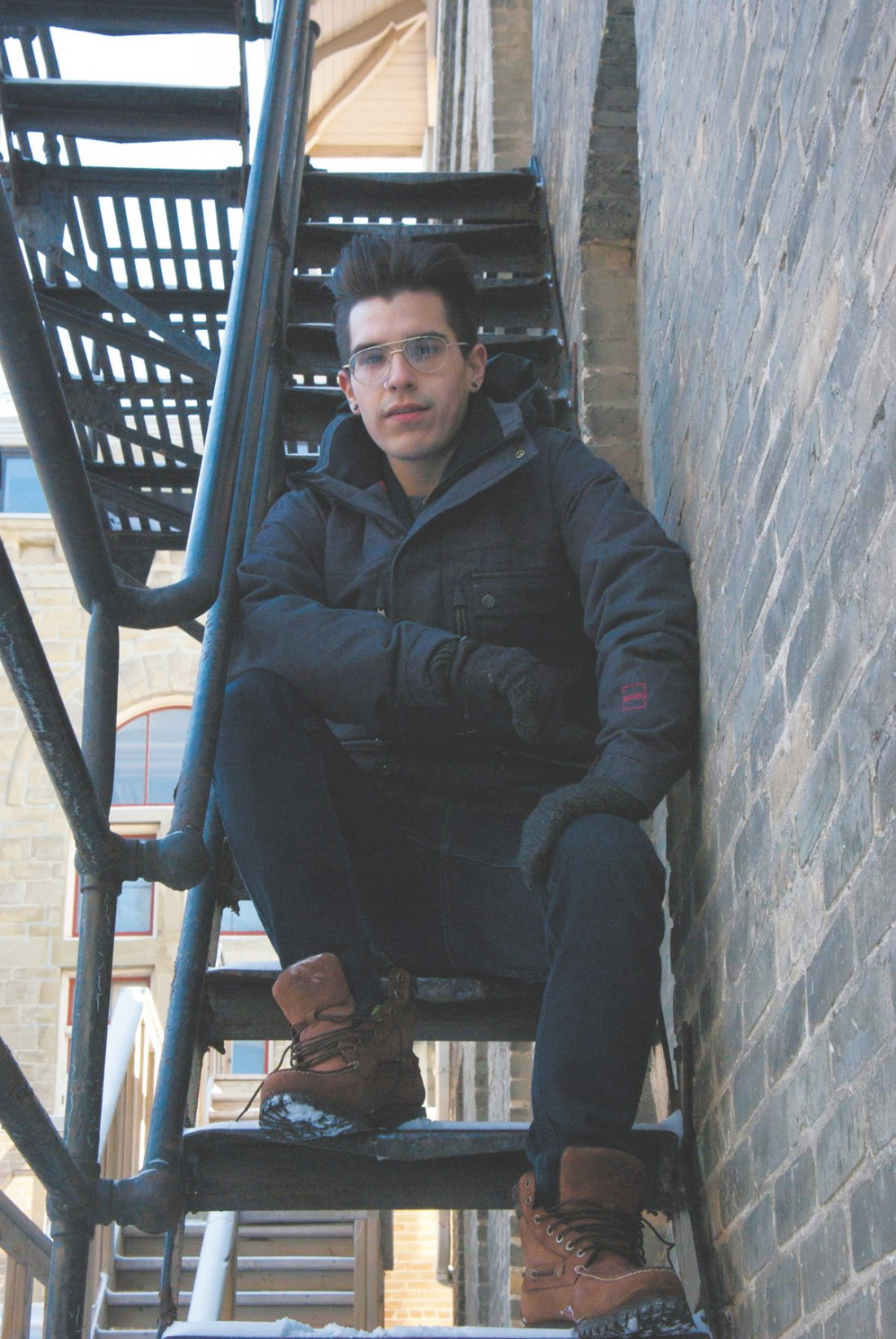
Joshua Whitehead - Credit: Keeley Braunstein
While working on his B.A. at the University of Winnipeg, Whitehead went through the creative writing stream where he was introduced to mentors Margaret Sweatman, Catherine Hunter and Jenny Wills.
“The creative writing stream offered a community to work with. It was intimate and giving and that in itself is invaluable,” Whitehead says. “An artist isn’t necessarily just born. It is cultivated and you can be made that way through guidance and perseverance and dedication.”
Mentorship has also played important roles in McClelland’s career through WCD Artistic Director Brent Lott and Jakobson’s through Dominique Rey, Eleanor Bond and Mentoring Artists for Women’s Art (MAWA).
While community, mentorship and artistic institutions all play very important roles in developing a career in the arts, Gibril Bangura is an emerging artist to Winnipeg’s artistic community in a very different way.
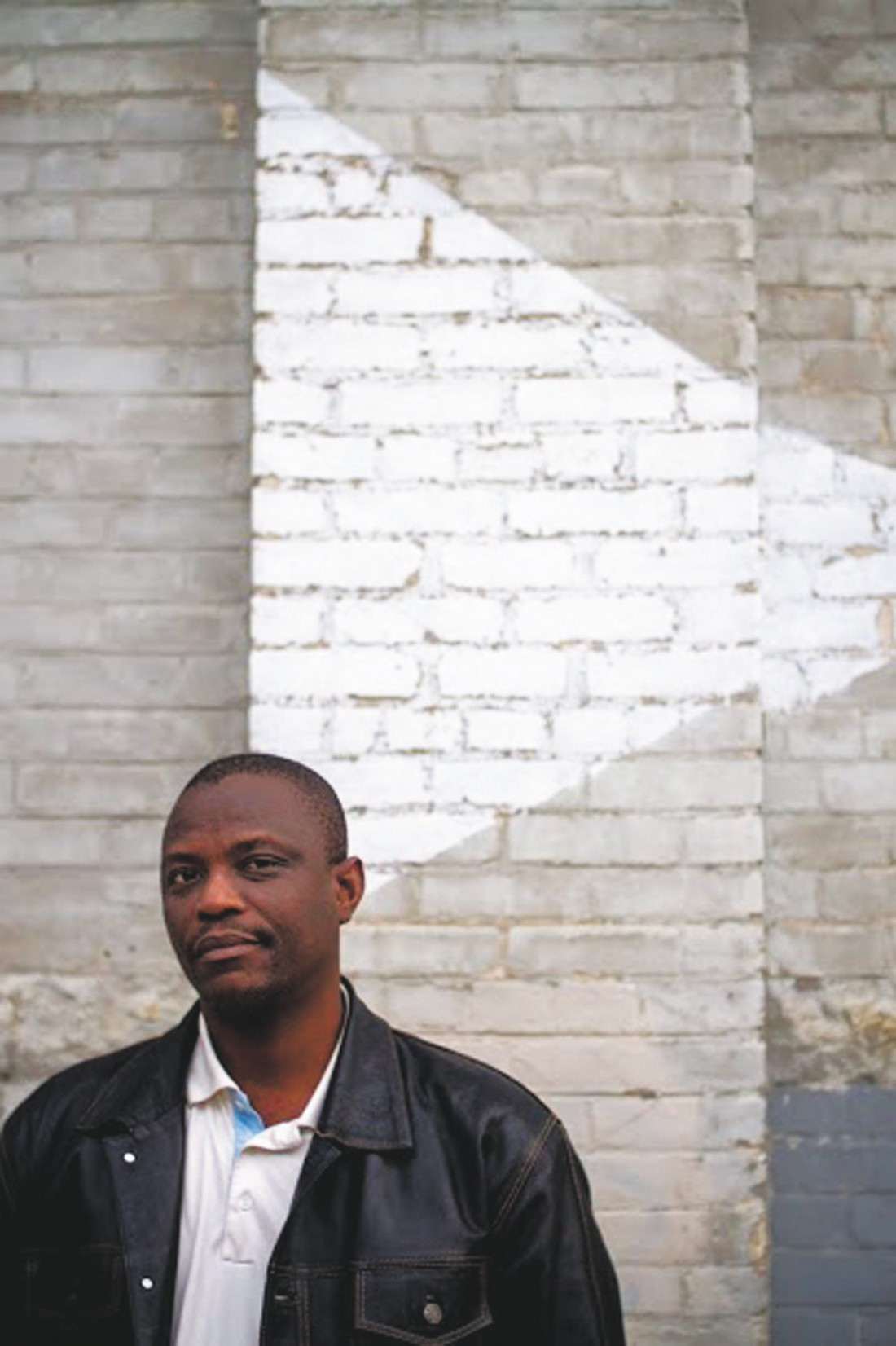
Gibril Bangura - Credit: Chris Friesen
Bangura, 46, moved to Winnipeg from Sierra Leone less than a year ago. Although the painter had a successful career in the arts previous to the move, he is now back at an emerging level due to a lack of developed community and the inability to get arts funding.
“It’s completely different here,” Bangura says. “It was always easy in the beginning of my career but I’ve struggled here because I have to start again.”
With an arts space in the infamous Frame warehouse, Bangura is able to continue to develop his work thanks to Arts Junktion, a centre for reclaimed arts materials.
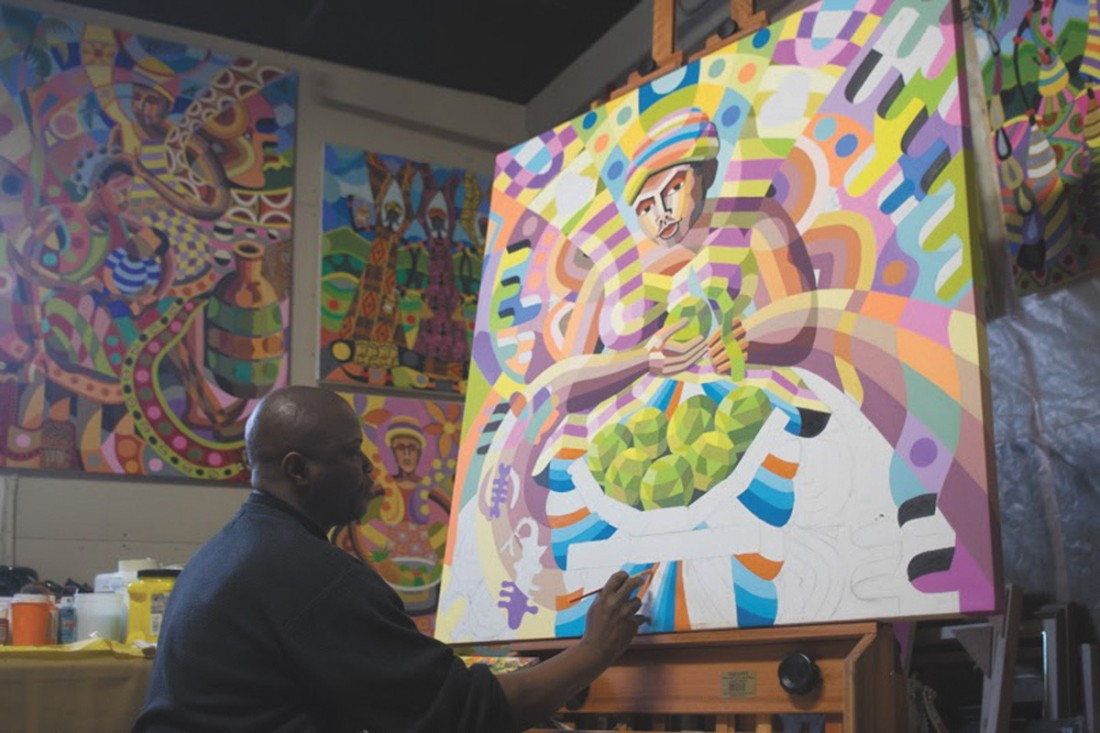
“I don’t know what I would have done without Arts Junktion,” he says. “It’s been instrumental in my ability to get the supplies I need.”
For filmmaker Kayla Jeanson, 27, Video Pool and the Winnipeg Film Group have been indispensable resources. In a field where the technology necessary for the job is expensive enough to put any well-established human in debt, these two organizations have been big players in getting Jeanson’s work realized.
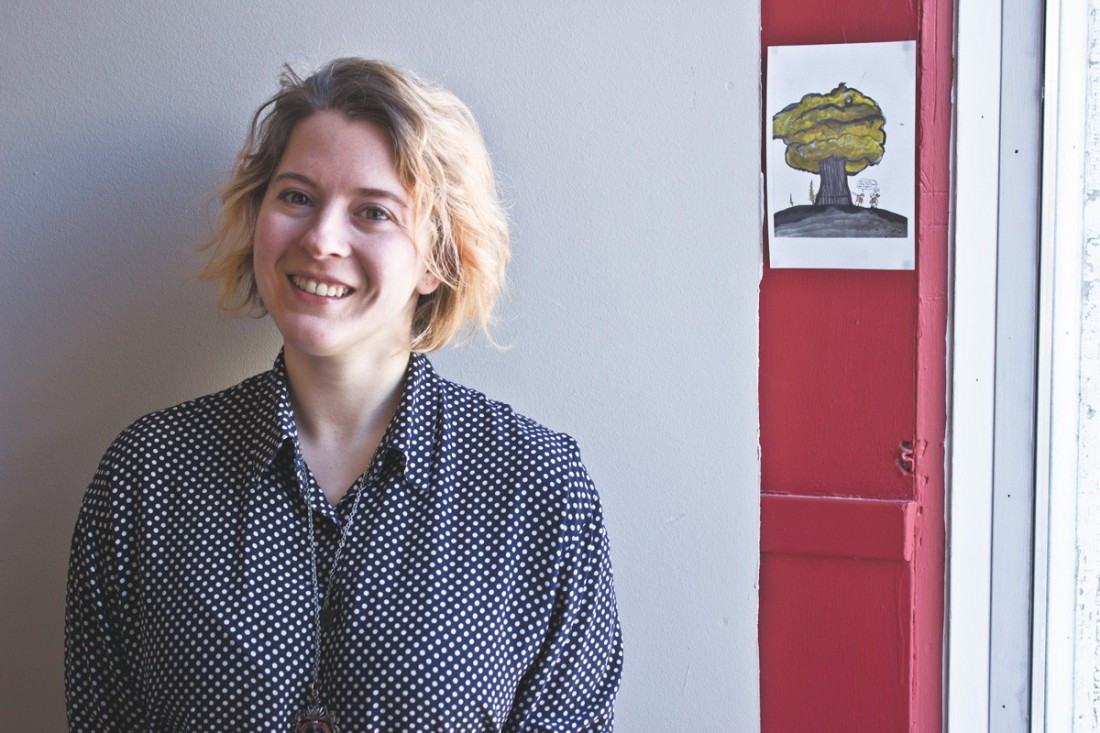
Kayla Jeanson - Credit: Jillian Groening
After taking both filmmaking at the University of Manitoba and dance through the senior professional program at SCD, Jeanson was able to combine her two loves and now focuses on producing dance films, both for archival and artistic purposes.
“It’s been completely enriching to follow what I’ve been wanting to do,” Jeanson says of her burgeoning career. Apart from plugging away at personal film projects for festival submissions, Jeanson and her partner recently took ownership of a company that does event recording and transfers - a highly sought-after service in the dance world.
As an emerging artist, having the ability to balance technical and lucrative jobs with more creative projects has been pivotal to Jeanson’s growing success. It has also allowed her to develop a true and clear artistic voice.
“It’s tricky when you’re constantly trying to express yourself and get your work seen, sometimes it feels like you’re standing in the middle of nowhere and just shouting, shouting into the landscape,” Jeanson explains. “It’s nice when it feels like you’re being heard.”
Published in Volume 69, Number 22 of The Uniter (February 25, 2015)

